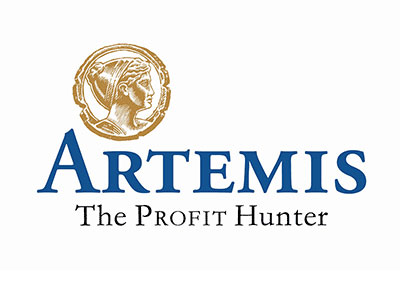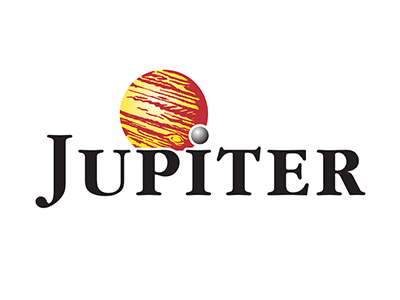

Funds in the global sector can invest anywhere in the world, but they go about this in different ways. Global funds vary not only by the countries and regions they invest in, but also by the types of companies and sectors they select.
Some focus on developed markets and large multinational corporations, while others invest more in higher-risk emerging markets or smaller companies. Some target companies with higher growth expectations and others search for unloved companies with recovery potential, known as value investing. Some also aim to deliver a growing and sustainable income.
The global sector can also give you access to sectors that aren’t as common in the UK, such as technology. There’s no richer hunting ground than the whole world.
Our view
The UK makes up only a small part of the global stock market, so we think it makes sense to diversify your portfolio by investing in other countries. Economies around the world are at different stages of development and it is important to have exposure to different drivers of returns. Emerging markets tend to focus more on exports, whilst more developed markets can rely more on domestic consumption. Some markets may rely on commodity prices, while others are more sensitive to currency fluctuations, or government policies.
It’s difficult to know which market will do well from one year to the next. By investing across lots of countries, you don’t have to guess which market will perform best and it helps spread the risk.
The Wealth Shortlist contains a selection of global funds we think have the best long-term performance potential. They have different investment styles and areas of focus – each will go in and out of favour, so we think it makes sense to invest in a variety. You can find out more about them in the 'Fund Ideas' tab.
Investment notes
Please remember past performance is not a guide to future returns. Where no data is shown, figures are not available. This information is provided to help you choose your own investments, remember they can fall as well as rise in value so you may not get back the original amount invested.
Wealth Shortlist funds in this sector
Funds chosen by our analysts for their long-term performance potential
SEE THE WEALTH SHORTLISTOur Wealth Shortlist features a number of funds from this sector, selected by our analysts for their long-term performance potential. The Shortlist is designed to help investors build and maintain diversified portfolios. To use the Shortlist, you should be comfortable deciding if a fund fits your investment goals and attitude to risk. For investors who don't feel comfortable building and maintaining their own portfolio we offer ready-made solutions, which are aligned to broad investment objectives. For those who want personal recommendations, you can also ask us for financial advice.
The fund reviews below are provided for your interest but are not a guide to how you should invest. For more information, please refer to the Key Investor Information for the specific fund. Remember all investments, and any income from them, can fall as well as rise in value so you could get back less than you invest. Past performance is not a guide to the future.
There's a tiered charge to hold funds with HL. It's a maximum of 0.45% p.a. View our charges.
Wealth Shortlist fund reviews
The team invests in under-the-radar smaller companies from around the world outside the usual candidates of large firms that dominate stock markets.
Kirsty Desson and her team champion the benefits of investing in companies considered too small by many other global fund managers. They look in both developed and higher-risk emerging markets to find businesses they think are high-quality, growing and have momentum behind them. This fund invests in relatively few companies. That means each one can have a greater impact on performance, although it's a higher-risk approach. Smaller companies have tended to perform better than larger ones over the long term but they're more volatile and higher risk. The manager also has the ability to use derivatives which can add risk.
Desson, a long-standing member of the team, has taken over from Harry Nimmo who was a co-founder of the fund, following his retirement at the end of 2022. Desson continues to adopt the same investment philosophy and approach previously used by Nimmo.
Jacob de Tusch-Lec aims to deliver a higher income than the global stock market average by taking a contrarian approach and investing in areas that others may avoid.
There aren't many global income funds like this one. The manager invests in unloved companies he thinks could return to favour, and which have tended to offer higher yields than higher-quality, growing companies. This means performance often looks different to the benchmark and its peers. De Tusch-Lec also invests in some higher-risk smaller companies and emerging markets and can invest in derivatives, which adds risk if used. The fund's charges are taken from capital, which can increase income but reduce the potential for capital growth over time.
The fund has performed better than the IA Global Equity Income sector since launch in July 2010. The manager's ‘value' investing style has been out-of-favour for large parts of this period, particularly between 2018 and 2020, which led to poor performance compared with the sector average. More recently the fund has benefited from a focus on more economically sensitive parts of the market and the market's renewed focus on value investing.
Investing this way requires patience, and it won't always work. We think it's important for a portfolio to contain a range of different investment styles, as they fall in and out of favour over time, and what works well now may not work so well in the future.
Daniel Roberts aims to provide a higher yield than the global stock market by investing in companies he thinks can reliably grow both their share price and dividends over many years.
Roberts likes easy-to-understand businesses with predictable earnings and sensible management. He has a fairly conservative investment approach, placing emphasis on sheltering investors' capital when times get tough. He normally invests in large companies from developed markets but can also invest in smaller companies and use derivatives, all of which add risk. The fund's charges are taken from capital, which can increase income but reduce the potential for capital growth over time.
Since launch the fund has performed better than the IA Global Equity Income sector average. The manager's bias towards quality companies has meant the fund usually holds up better than others during falling markets but lags rising ones. We believe the manager has the ability to add value and grow income over the longer term, though as with any investment there are no guarantees.
This fund offers a simple and low-cost option for investing in a large number of companies from developed markets.
The managers invest in virtually all companies from the major developed-world stock markets including the US, Europe and the UK. That means there are over 1,500 companies in the portfolio. The managers use their decades of experience and the scale of their organisation to keep costs low and closely match the performance of the global stock market.
Since launch the team has done an excellent job at replicating index performance. As with nearly all index trackers, the fund often marginally lags the index due to the costs involved, but it's kept very close. We think it'll keep up the good work over the long term, although there are no guarantees.
Ben Whitmore and Dermot Murphy look for unloved companies they think are attractively-priced and will return to favour.
The managers don't chase companies with high growth expectations, which they think can often be expensive. They like the unpopular or unfashionable ones whose shares can be bought for less than they think they're worth. The managers invest in relatively few companies so each can have a big impact on performance, but it increases risk. So does the flexibility for them to invest in smaller companies and emerging markets.
Companies with high growth expectations were a headwind for the managers' preferred unloved companies until the end of 2021. The managers’ ‘value' approach requires patience as it can take time for companies to recover, and the managers won't get everything right.
Since launch the fund has underperformed its peers in the IA Global sector, but since the end of 2021 it's done much better and outperformed. Whitmore has lots of experience in value investing and we think this bodes well for the fund over the long term, although there are no guarantees.
The fund aims to track the FTSE World (excluding UK) index as closely as possible, by using the scale and know-how of Legal & General, one of the largest providers of tracker funds in the UK.
The fund invests in around 2,200 companies across most of the world's major economies. It doesn't invest in any UK companies though. The amount invested in each country depends on its share of the global stock market. That's why over half the fund is invested in North America, followed by Japan and European countries like France, Switzerland and Germany. The fund also invests in more advanced emerging markets, which adds risk.
It's done a good job at hugging the index as closely as possible. Part of that is down to keeping its charges low, as charges hold back performance. We think it's an excellent low-cost option for investing in a very broad range of global companies.
James Thomson invests mainly in companies he thinks have the best long-term growth prospects, but also invests in what he deems to be more stable ones that have tended to do well in both economic ups and downs.
Thomson and deputy manager Sammy Dow look off the beaten track to find companies they believe will grow over the long term. They normally find those among large companies from developed countries, and usually avoid higher-risk emerging markets and smaller companies, although they can invest in them.
Thomson's long-term track record is excellent and has outperformed the IA Global sector average. More recently the fund's growth style of investing has acted as a headwind. We think the manager is skilled at picking companies for their long-term growth potential, though that's no guarantee of future returns. Past performance is not a guide to the future.
James Harries aims to grow both capital and income over the long term by selecting companies he considers high-quality.
James Harries and his deputy Tomasz Boniek invest in companies they view as financially sound and provide goods or services that are usually always in demand. Troy sets a high standard when it comes to a company's quality and the managers mainly invest in large businesses from developed regions like North America and Europe. While they have the flexibility to invest in higher-risk emerging markets, they tend to avoid them, preferring companies that sell their products into these regions. The fund invests in a small number of companies, so each can have a big impact on performance, both positively and negatively. Harries' focus on high-quality companies and more conservative investment approach means we expect the fund to hold up relatively well when markets fall, though like any investment it can still fall in value.
Investors should be aware that charges are taken from capital, which can increase the yield but reduces the potential for capital growth. The manager also has the flexibility to use derivatives which, if used, increases risk.
Source for performance figures: Financial Express.
There are no recent news updates for this sector
Our expert research team provide regular updates on a wide range of funds.
Please note the research updates are not personal recommendations to trade. If you are unsure of the suitability of an investment for your circumstances please seek advice. Remember all investments can fall as well as rise in value so investors could get back less than they invest.
Latest research updates on funds in this sector
Artemis Global Income: December 2023 Fund Update
Thu 21 December 2023
In this fund update, Senior Investment Analyst Aidan Moyle shares our analysis on the manager, process, culture, ESG integration, cost and performance of the Artemis Global Income fund.
Vanguard LifeStrategy Fund: October 2023 Update
Tue 07 November 2023
In this fund update, Senior Investment Analyst Hal Cook shares our analysis on the manager, process, culture, ESG integration, cost and performance of the Vanguard LifeStrategy funds.
Jupiter Global Value Equity: October 2023 Fund Update
Mon 06 November 2023
In this fund update, Investment Analyst Aidan Moyle shares our analysis on the manager, process, culture, ESG integration, cost and performance of the Jupiter Global Value Equity fund.
Rathbone Global Opportunities: July 2023 fund update
Tue 18 July 2023
In this fund update, Investment Analyst Aidan Moyle met with lead manager James Thomson to discuss how he has dealt with a volatile 12 months as investors rotate back to growth stocks.
Fidelity Index World: June 2023 fund update
Fri 09 June 2023
In this fund update, Investment Analyst Josef Licsauer shares our analysis on the manager, process, culture, ESG integration, cost and performance of the Fidelity Index World fund.
Our expert research team provide regular updates on a wide range of funds.




